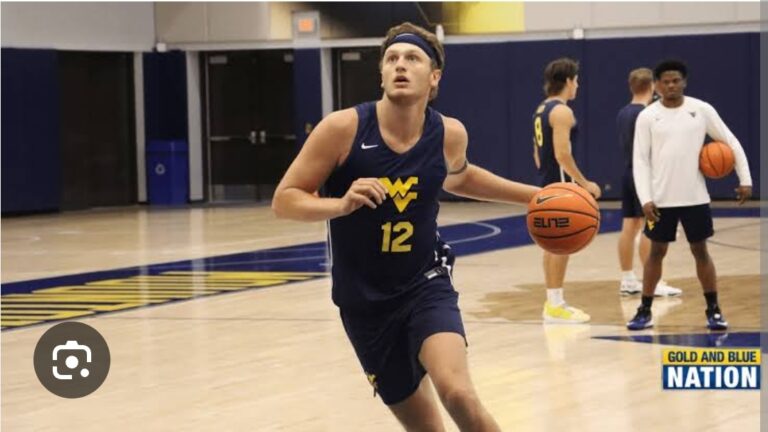Tucker DeVries, a standout player at Drake University, has often shared insights about the unique father-son dynamic he shares with his coach, his father, Darian DeVries. This relationship goes beyond the typical athlete-coach interaction, blending familial bonds with the rigors of competitive sports. Their connection has profoundly shaped Tucker’s development, both as a player and as an individual.
From a young age, Tucker was immersed in basketball, largely influenced by his father’s passion for the game. Darian, who has built a reputation as an effective coach, emphasizes not only skill development but also character building. Tucker learned early on that the court is as much a place for personal growth as it is for athletic achievement. The lessons taught at home often mirrored those on the court, creating a seamless integration of life and sport.
This blending of roles has its challenges. Tucker has acknowledged that playing for his father can sometimes blur the lines between personal and professional expectations. During games, the intensity can rise, and the stakes can feel personal. Yet, they have found ways to navigate this complexity. Darian maintains a clear distinction between their roles as father and coach, providing Tucker with constructive criticism while also offering support and understanding that only a parent can provide. This balance fosters a unique atmosphere where Tucker feels encouraged to express himself both as a player and as a son.
Darian’s coaching philosophy emphasizes trust and communication, key components that have enriched their relationship. Tucker has spoken about how this open dialogue allows him to seek guidance, not just on basketball techniques but also on managing pressure and expectations. This supportive environment has been crucial for Tucker, particularly as he faced the rigors of collegiate basketball and the pressures that come with being a coach’s son. Darian’s approach to coaching encourages Tucker to embrace challenges, instilling resilience and a strong work ethic.
The father-son dynamic also extends to moments of celebration and adversity. When Tucker performs well, the joy they share is magnified by their relationship. Conversely, during tough losses, their ability to process the events together strengthens their bond. Darian’s role as a father enables him to provide emotional support, reminding Tucker that basketball is just one aspect of life. This perspective has been essential in helping Tucker maintain balance and perspective throughout his athletic journey.
As Tucker has matured as a player, so has the dynamic of their relationship. Initially, Darian’s role was primarily as a teacher and mentor, but over time, they have developed a partnership. Tucker’s insights and experiences have started to shape the team’s strategy, allowing for a more collaborative approach to the game. This evolution highlights the mutual respect that has developed between them, showcasing how their relationship has deepened beyond traditional roles.
In summary, the father-son dynamic between Tucker and Darian DeVries is a compelling story of love, respect, and growth. It illustrates how a familial bond can enhance the coaching experience, fostering an environment that encourages both athletic and personal development. As Tucker continues his basketball journey, the lessons learned under his father’s guidance will undoubtedly play a pivotal role in shaping his future, both on and off the court. Their relationship stands as a testament to the power of connection in sports, where the lines between family and teamwork often blend, creating a legacy that goes far beyond wins and losses.


